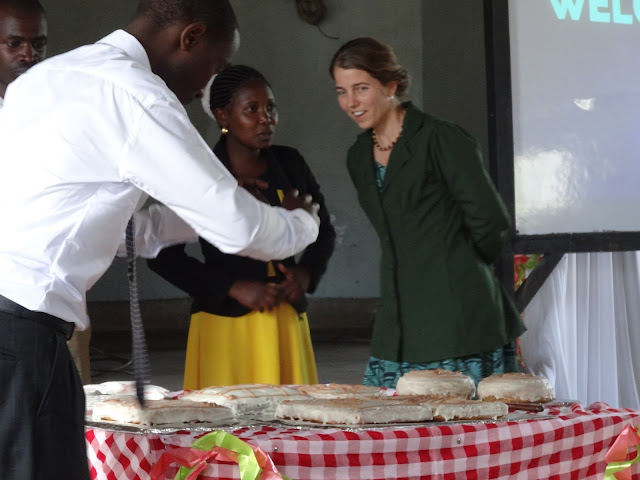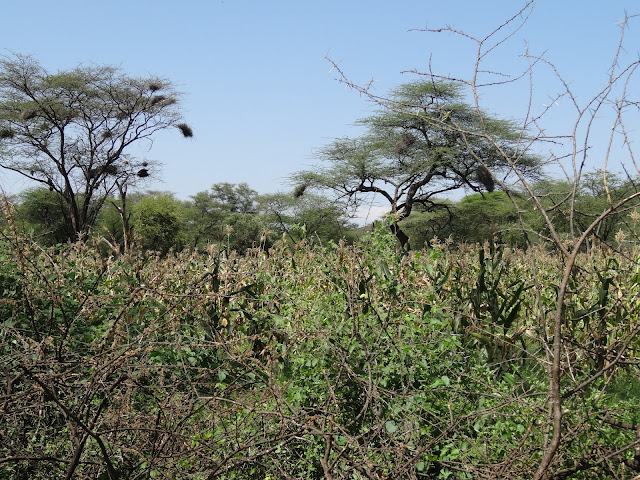Praise the Lord! I made it through my first busy month of teaching. It was wonderful. From here on out, it should be more of a relaxed pace. We have a couple weeks off from classes, and then the regular term students come.
In this blog post, I'd just like to give you a few interesting insights about life here at the college. But, mostly I want to share with you some pictures and videos.
First, we celebrated our anniversary recently, and managed to get a good photo of ourselves:
Second, I have some really interesting and talented students in many ways. But one interesting thing is that of the around 30 modular students we have at the college (they come for 3 months a year, one month at a time), at least 5 of them are Gospel artists. They don't do this for their primary living, but on the side they are Christian singers, complete with giving concerts, having their songs on the radio, producing CDs, and making music videos. I looked on youtube for their music videos, but could only find videos there for just one of my students. Her name is Purity. Enjoy:
The new programs that were just launched include social work, CPA, and business management. In other words, the college is no longer just for theological students, even though they still make up the majority of the students who are here. You can pray for the college as they try to start these new programs. It only works if they can market themselves well and the students actually register to come. This is important both because the college really wants to help the surrounding communities with such programs, and because with more students coming in these new programs, the school will be more financially stable and successful.
Two of the above mentioned Gospel artist students sang at the launching day. Here is Pauline and then Purity, and then Benson. They sound like they are lip syncing, but they are singing along to their own recordings, their own created songs.
This is our bishop of Nakuru Diocese, the Right Reverend Joseph Muchai. We have gotten to know him pretty well over the last year or so through our many visits to Nakuru from Uganda. He is the main one overseeing all of our work as he is really the one in charge of the Diocese, including the Anglican Development Services, Berea Farm, and Berea College. Everyone reports to him, so he is the connecting link, especially for Sara, when she is working with so many different organizations at once. We really like this bishop, as he is really humble, personable, and a good leader.
Ranya, our Academic Dean:
Our Principal, Catherine:
The curtain opens to unveil the new courses being launched!
Sara made a ton of cakes for the event! People really enjoyed them. I think they look pretty fancy, and they certainly taste better than anything you'd get in the store.
Fourth, here are some photos and videos from chapel some days back. Chapel is every morning but I do not make it there every time. We also have a communion service with the whole college community every Thursday afternoon. At the communion services, each different year grouping of theology students makes up their own choir and sing a song for us. We have realized, both from our time at Berea and also times at church services, that Anglicans really love choirs, and you can usually expect that the total time for choir presentations will be longer than the sermons.
1st year modular students:
2nd year modular students:
3rd year modular students:
Quite the podium for preaching in the chapel:
Last, here are some photos taken outside of most of the Berea community together during August:
Student leaders of various aspects of college life:
Some, but not all, of the staff. This includes all the teachers except for the part-time adjunct teachers, of which we have 2-3.















































